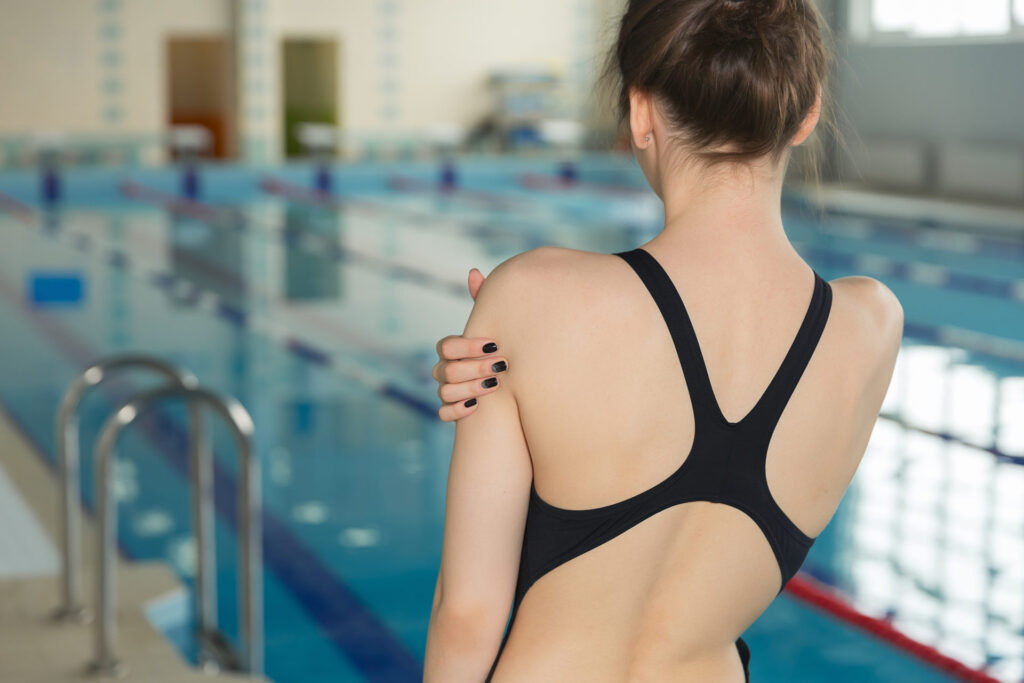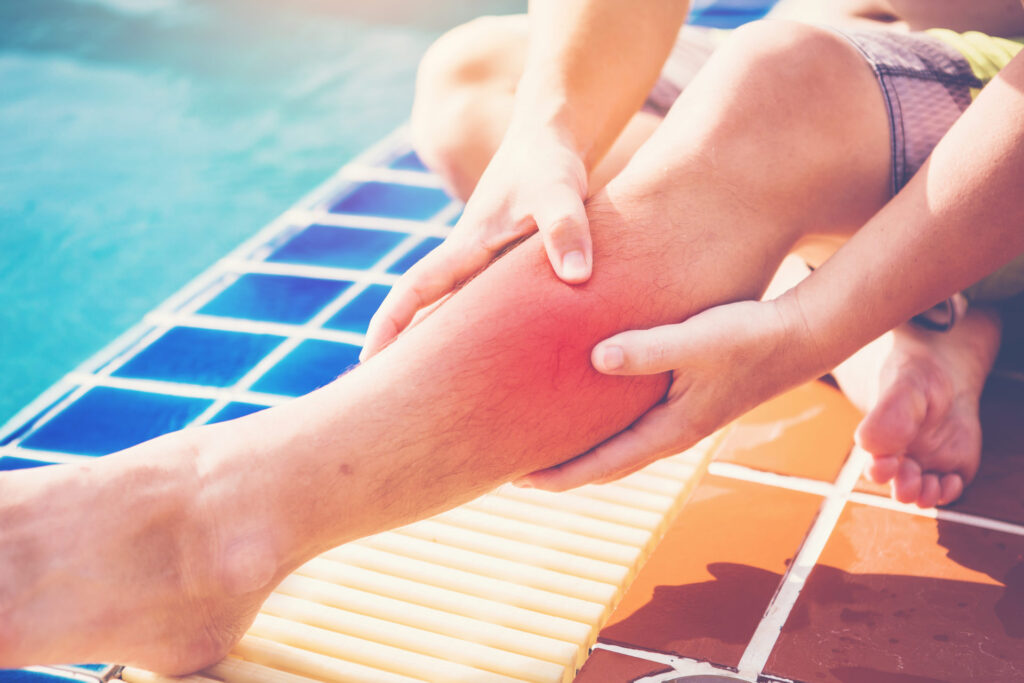What Are the Most Common Swimming Injuries?

Can You Get an Injury From Swimming?
Swimming is a fantastic low-impact exercise, great for strengthening the heart, respiratory system, and muscles throughout the body. Doctors recommend swimming to many who are unable to do other forms of strenuous exercise. But despite its healthy nature, swimmers can definitely experience injury.
Contrary to popular belief, the rate of swimming injuries in the NCAA is actually greater than ice hockey, lacrosse, and even men’s football! Whether you are swimming in college, at the professional level, or just for some full-body exercise, understanding common injuries could keep you in the pool instead of the doctor’s office.
What Are the Causes of Swimming Injuries?
Before diving into common injuries (no pun intended), it helps to grasp the causes of injury. Typically, swimming injuries are usually overuse injuries, often attributed to poor technique or overtraining.
Along with being brought on from overuse, other causes of injuries include:
- Poor stroke mechanics
- Poor breathing techniques
- Lack of flexibility and range of motion
- Weak rotator cuff or shoulder
- Not enough core strength and stability
- Decreased hip muscle strength

Common Swimming Injuries
If these causes of injuries sound familiar, or if you are experiencing pain and discomfort, it also is beneficial to understand the common swimming injuries; it will further you in your path to treatment.
Swimmer’s Shoulder
Swimmer’s shoulder is the most common swimming injury, and consists of tissue damage to the rotator cuffs or arm/shoulder muscles. Almost everyone will experience this kind of injury to some degree, and it will likely prevent swimming temporarily. Usually, this injury results from the freestyle stroke.
Neck Injuries
Because of strain from keeping the head above water and rotations for breathing, the neck is susceptible to injury. Neck injuries result in pain, discomfort, and stiffness of and around the neck.
Swimmer’s Knee
Physically demanding movements required from some swimming styles like the breaststroke can impact the ligaments of the knee. This generally causes swelling, knee pain, and inflammation, among other symptoms.
Swimmer’s Ear
This is not an orthopedic injury, but it is still a common cause of pain and discomfort for swimmers. This syndrome is primarily contracted after swimming in water with high levels of bacteria. Symptoms include itching, clogged ear canals, and muffled hearing.
Treatment Options
Treatments for swimming injuries include physical therapy, anti-inflammatory medicines, rest, and stretching. It is best to consult your doctor or trained experts like Kintsugi Physical Therapy and Wellness for proper treatment and recovery.
Physical Therapy
This commonly prescribed treatment involves addressing injury through movement, exercise, and manual therapy. For swimming injuries, this form of rehabilitation includes:
- Correction of muscle imbalances (rotator cuff and shoulder)
- Practicing correct stroke techniques
- Spinal stabilization exercises
- Core stabilization and strengthening exercises
Injury Prevention
Preventing injuries with your swimming regime involves avoiding overtraining, stretching, and allowing proper rest periods between training sessions. It is also important to focus on practicing proper swimming technique to keep yourself healthy.
Technique Tips
Here are some guidelines for maintaining proper swimming technique for injury prevention.
- Make sure your arm enters the water with your pinky finger first or your hand flat. Don’t rotate your arm.
- Don’t cross the midline of your body when hand enters the water
- Move your body together, with your head in line
- Breathe on both sides of your shoulder to distribute pressure evenly
Stretching Routine
Stretching adequately before swimming is another vital way to prevent injury and improve range of motion. These are stretches you should be incorporating to prepare your muscles for healthy exercise.
- Shoulder stretch
- Long head biceps stretch
- Pectoral stretch

Let Kintsugi Physical Therapy and Wellness Help You Recover From Your Swimming Injury
Swimming injuries are troublesome and painful. If not treated properly, they can keep you from swimming and can result in long term damage to your body. If you think you might be battling an injury, don’t hesitate to reach out for physical therapy. The more you wait, the longer you have to stay out of the pool.
Our team at Kintsugi Physical Therapy & Wellness believes in treating the body holistically, taking all of your needs into account. We are able and ready to help you rebuild your life using the expertise and innovative techniques we have available.
Contact us or call us at 253-330-8518 to get started.
